Foreign troops in Ukraine: between politicians' statements and real needs
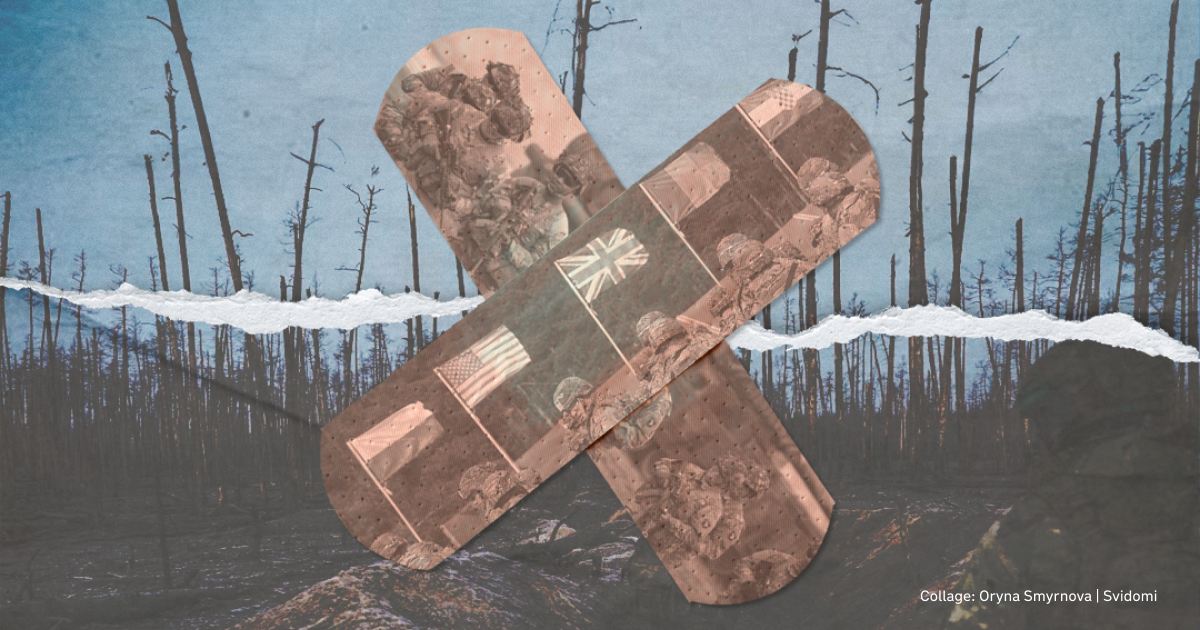
26 February. Paris. Another meeting of world leaders to discuss military aid to Ukraine in its war with Russia. Speaking to journalists, French President Emmanuel Macron says Paris will do everything possible to support Kyiv.
To clarify, journalists asked Macron what his words "everything possible" meant. The French president replied that he did not rule out anything, including the deployment of ground troops in Ukraine including French troops.
This statement excites the world media and other political leaders. Most of Ukraine's partners (and not only partners, such as Hungary) are eager to say that they rule out the possibility of sending troops to Ukraine. Those who ruled out such a possibility were Dutch Prime Minister Mark Rutte, NATO Secretary General Jens Stoltenberg, German Chancellor Olaf Scholz, Swedish Prime Minister Ulf Kristersson and National Security Council spokeswoman Adrienne Watson. At the same time, however, a number of countries said they were "not ruling it out".
The possibility of sending foreign troops to Ukraine still appears in the media occasionally, but is it necessary, and how do people in Ukraine react to it — Svidomi explains.
Macron's big moment
Nicolas Tenzer, senior research fellow at the Centre for European Policy Analysis, believes that even though President Macron's comments came as a "shock to the allies", the issue of sending troops to Ukraine was on the agenda of the February 26 meeting.
In his opinion, most of the allies did not know that Macron would talk about it publicly. The French president thus broke the taboo on the issue, although he was careful in his remarks, noting that there was no unanimity among the allies.
British journalist and publicist Edward Lucas believes that with "America deadlocked, Germany divided and Britain distracted", the hopes for Ukraine's survival and Europe's security lie with France.
He believes that such French rhetoric means the EU will spend more money on international arms purchases for Ukraine. And Macron will help "counteract the chronic wavering of German Chancellor Olaf Scholz".
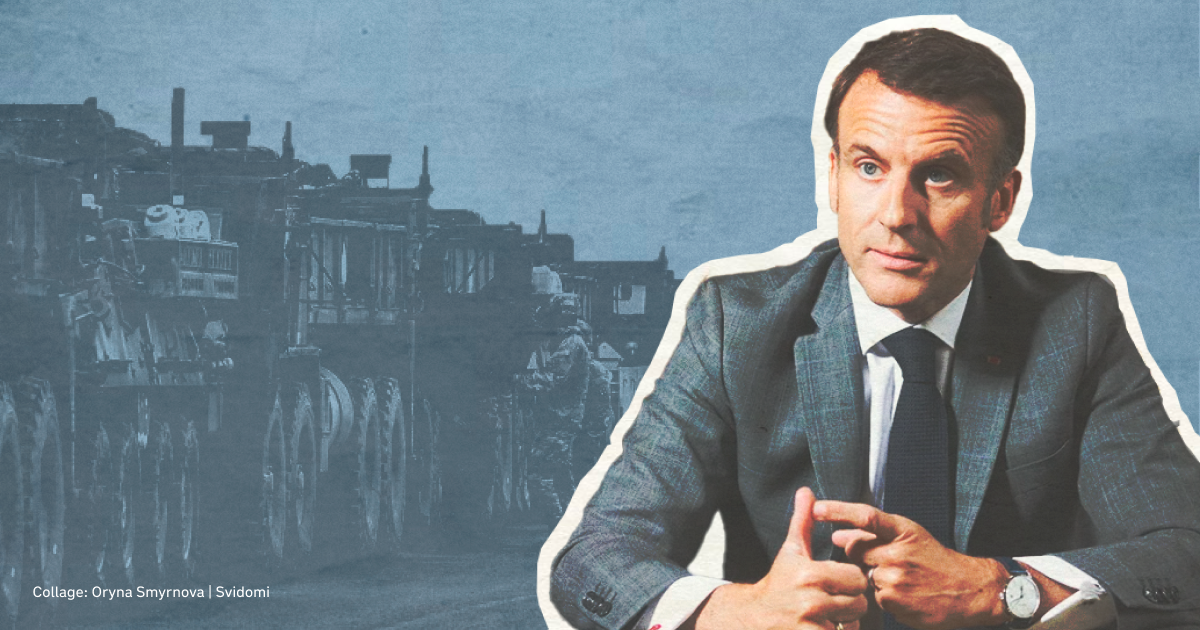
According to US media, in February, Emmanuel Macron held confidential talks with US President Joe Biden and German Chancellor Olaf Scholz to persuade them to change the West's strategy in Russia's war against Ukraine. The French president believes that Western countries should adopt a position of strategic uncertainty towards Russia, which would leave "all options on the table, including military ones".
This is a radical departure from the position adopted by the Biden administration since the beginning of the war. Washington's approach has been to avoid actions that could provoke Moscow and lead to an escalation of the conflict. Conversely, Macron wanted to stop broadcasting the limits of Western intervention — the so-called Western red lines — and instead keep the Kremlin guessing about what to expect.
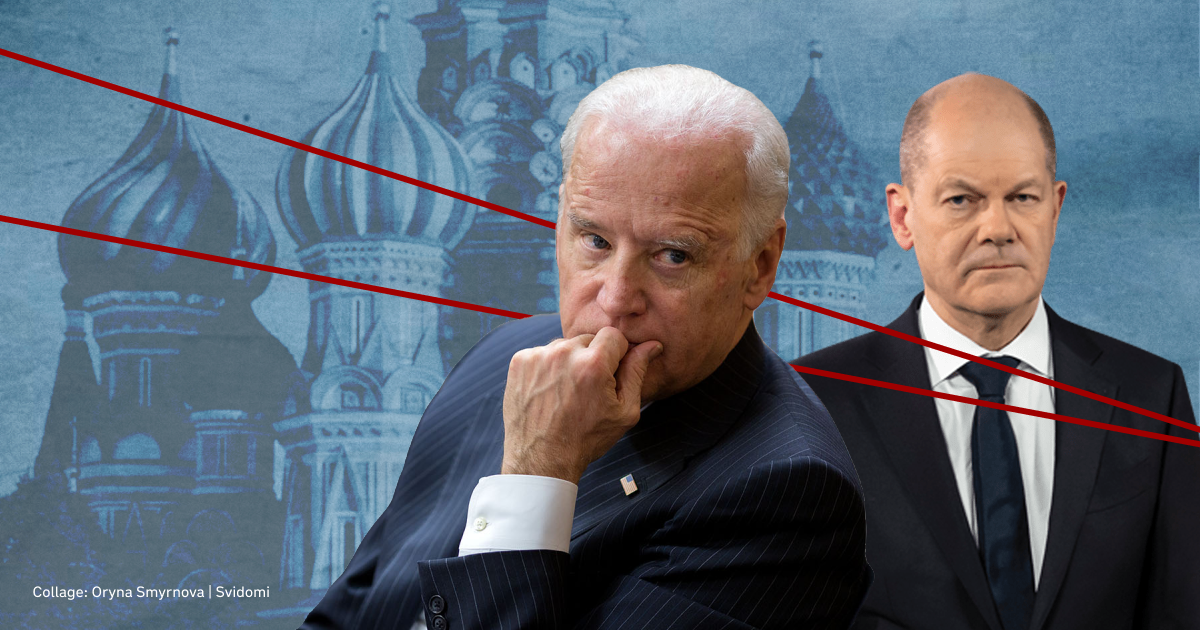
Differences in rhetoric: West and Eastern Europe
While allies in Western Europe have rejected the possibility of sending foreign troops to Ukraine, allies in Eastern Europe and some in Northern Europe have been less categorical.
Lithuanian President Gitanas Nausėda says he "welcomes the idea" and believes it should be discussed.
"Of course, the best thing would be for all of us to agree unanimously on the need for this and to assess very well the intelligence and other information we have," the Lithuanian president said. It is not known what kind of information Nausėda was referring to. However, Estonian and Lithuanian intelligence agencies claim that Russia is "preparing for a protracted military standoff with the Baltic states".
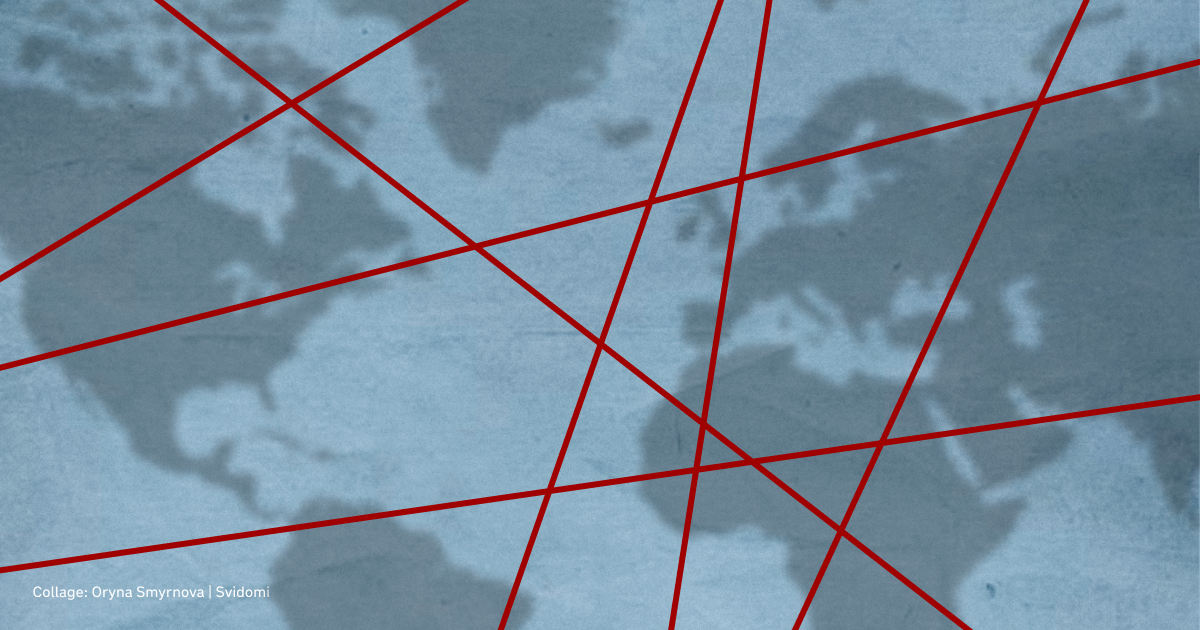
The Lithuanian president says the West should stop drawing "red lines" for itself because it only helps Putin, "who is beginning to think that we (the West — ed.) are predictable and that he can control and manipulate us".
Polish Foreign Minister Radosław Sikorski said he "understands" the position of French President Emmanuel Macron.
"I understand the strategic or, in this case, tactical logic of President Macron to change the narrative. Let Putin worry about what we are going to do," he said, but added that Polish troops should be the last to arrive because "Ukraine and Poland have been one state for 400 years, and this would be fodder for Russian propaganda."
Later, Radosław Sikorski said that NATO troops were already present in Ukraine.
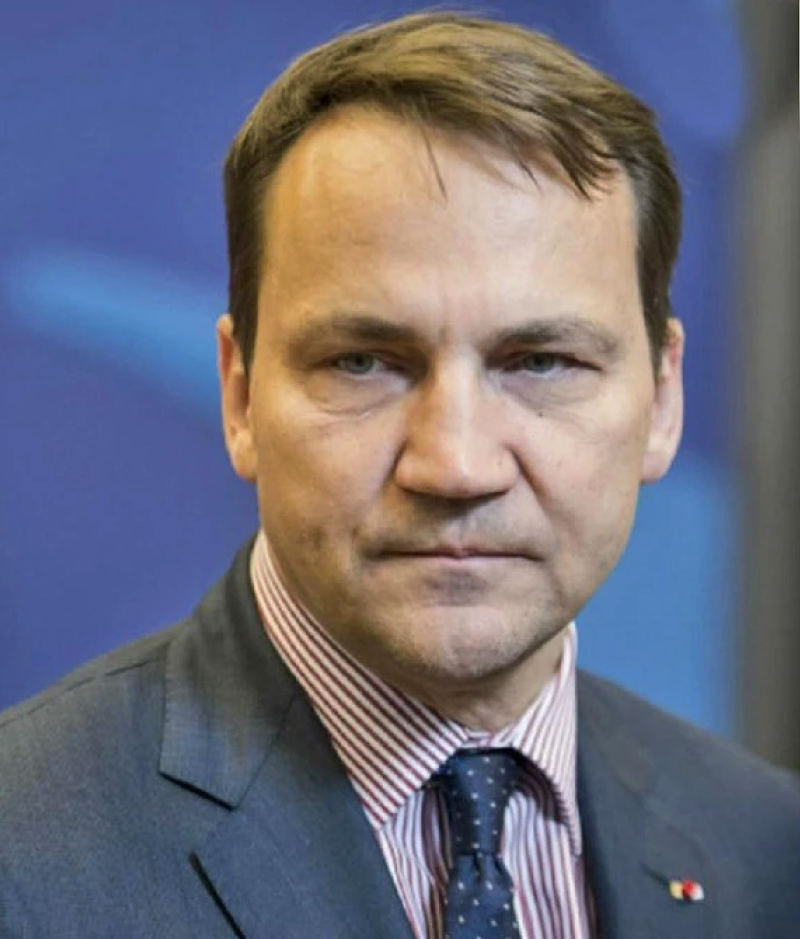
"Soldiers from NATO countries are already in Ukraine. I would like to thank the countries that are taking this risk. They know who they are," he told a conference in the Sejm dedicated to the 25th anniversary of Poland's NATO membership. He gave no further details.
Finnish Foreign Minister Elina Valtonen also said that Western countries, including the United States, should not be wholly opposed to sending troops to Ukraine if the situation there deteriorates.
"It is important not to rule out everything in the long term because we never know how serious the situation will become. But Finland's position is clear: we are not sending troops now, and we do not want to discuss it," said Elina Valtonen.
According to Valtonen, the most important thing now is that Ukraine's partners continue to send aid to Ukraine, and "many European countries could do much more".
Norway's position is similar. Foreign Minister Espen Barth Eide said he would not rule out sending troops to Ukraine in the long term, "although there are no plans for that at the moment". According to him, NATO wants to support Ukraine at a level where Ukraine succeeds and Russia fails. At the same time, the Alliance "does not want to be a direct party to the war because it could lead to a world war".
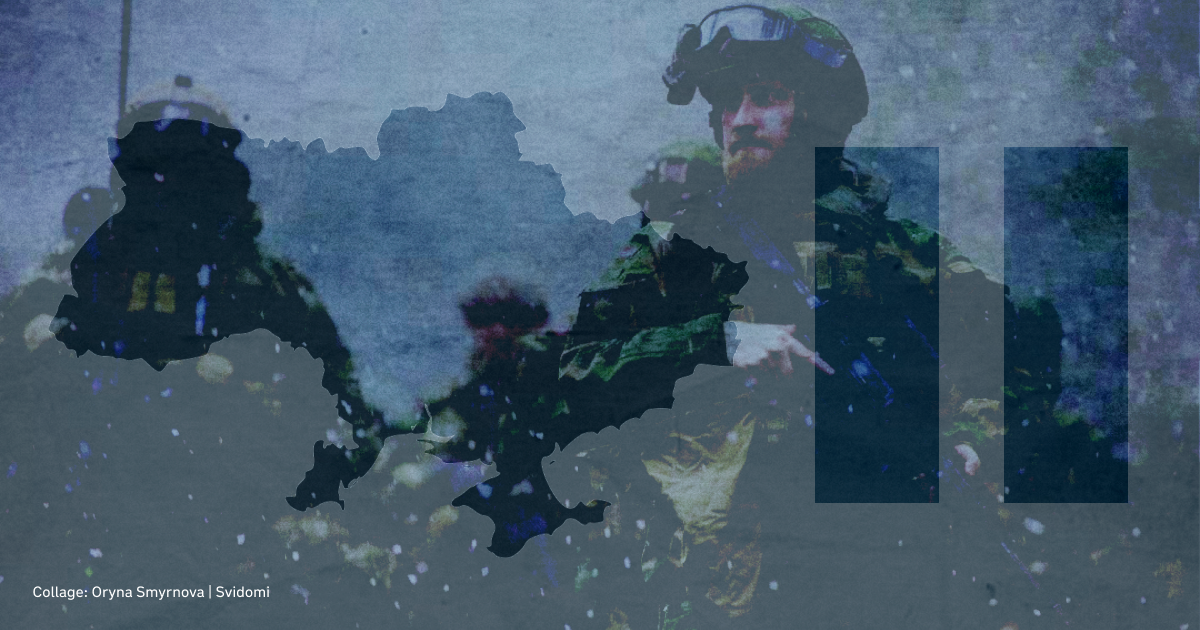
Politico argues that France is building an alliance of countries open to possibly sending Western troops to Ukraine, even though this could "deepen the confrontation with Germany", which is "cautious" on the issue.
The publication argues that during a meeting of the foreign ministers of France, Lithuania and Ukraine, the French minister said, "It is not up to Russia to tell us how we should help Ukraine in the coming months or years". For example, he cited de-mining operations involving a certain "presence" but not combat.
The Norwegian foreign minister added that discussions about the possible deployment of Western troops to Ukraine were not about combat troops for direct confrontation with Russian forces but rather about support, training, advisers, etc.
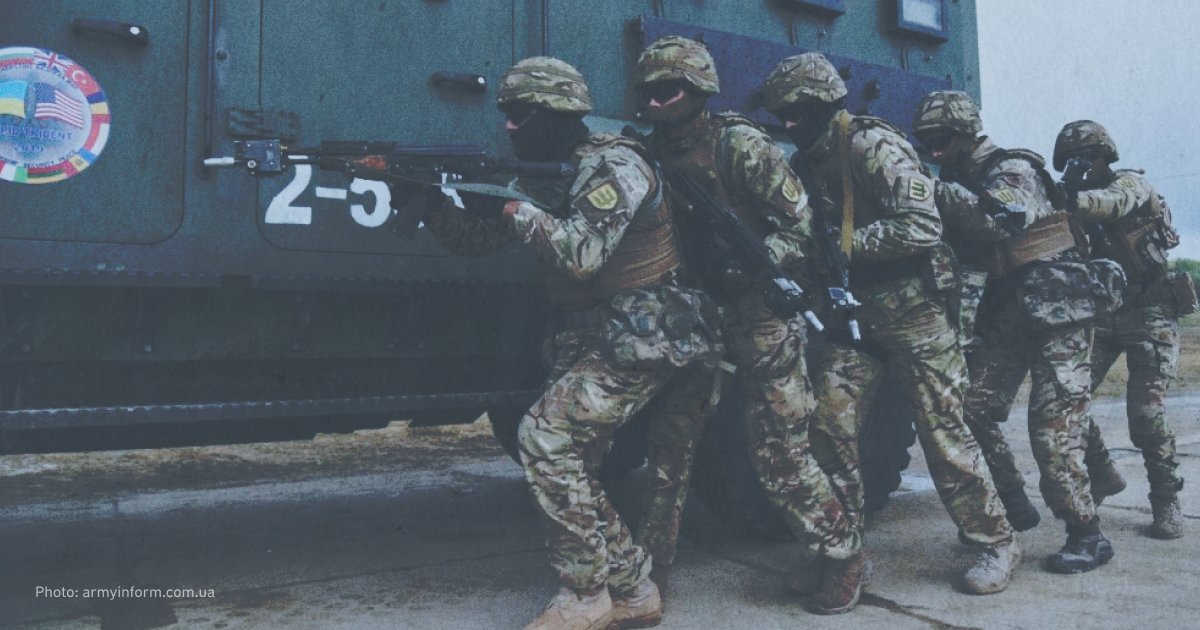
What are people saying about Western troops in Ukraine?
In an interview with the French television channel bfmtv, Ukrainian President Volodymyr Zelenskyy said that Ukraine does not need foreign troops on its territory. However, proposals for technical personnel to come to Ukraine to avoid sending military equipment to Europe for repairs should be considered.
Zelenskyy is convinced that the French army can stay on French territory as long as Ukraine holds out.
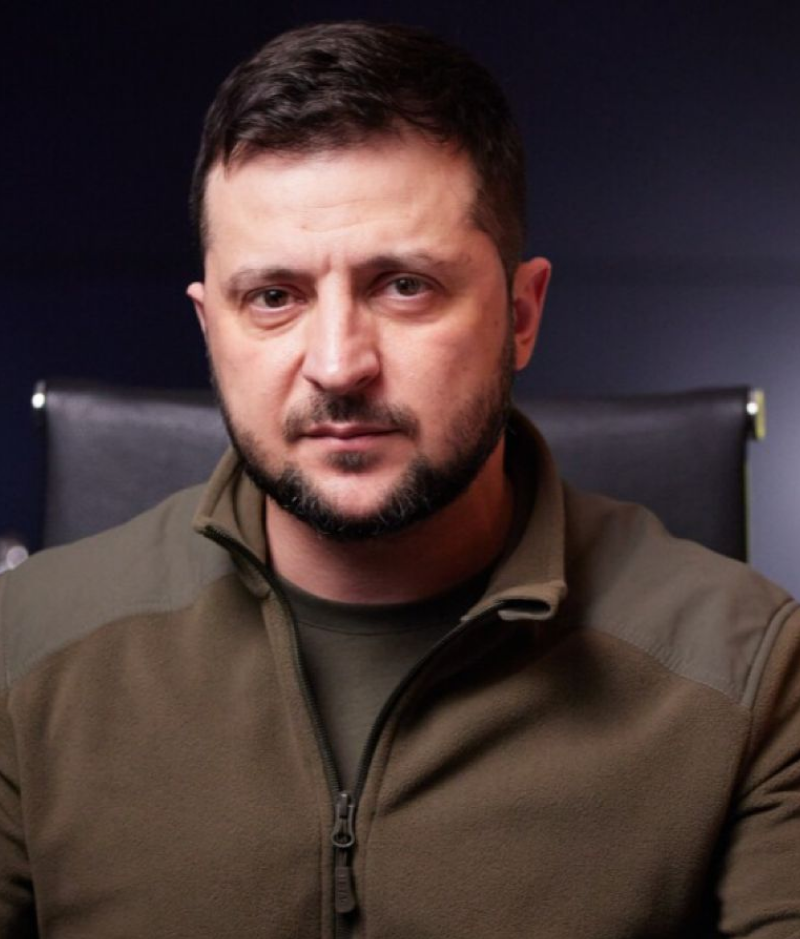
"But if Putin succeeds in attacking a NATO state, it will be up to NATO countries to decide how and in what numbers to send their armies, their battalions, to fight on its territory,"
Zelenskyy said.
Ukraine's Foreign Minister Dmytro Kuleba said the French president meant that NATO troops would be sent to Ukraine for training.
"When Macron started talking about sending troops to Ukraine, European leaders panicked. Macron only wanted to say that there is an opportunity to train the Ukrainian military directly in Ukraine, not abroad, as is happening now," Kuleba said.
Need number 1 — shells
Macron's comments were made against a backdrop of the US blocking financial aid to Ukraine and a severe shortage of artillery shells.
According to the Financial Times, the Ukrainian military used only a third of its daily requirements at the start of the year. The newspaper has seen a letter from the Ukrainian defence minister, Rustem Umerov, to the EU's chief diplomat, Josep Borell. In the letter, the FT writes, Umerov says that Ukraine's "absolute critical minimum daily requirement" is 6,000 artillery shells, but the Ukrainian defence forces can currently fire only 2,000 shells daily.
The newspaper writes that this lack of shells has been felt in places such as Avdiivka, where Ukrainian troops withdrew in mid-February.
Ukraine's European partners have two ways of supplying artillery shells to Ukraine — within the EU and through the Czech initiative, but there are difficulties with these.
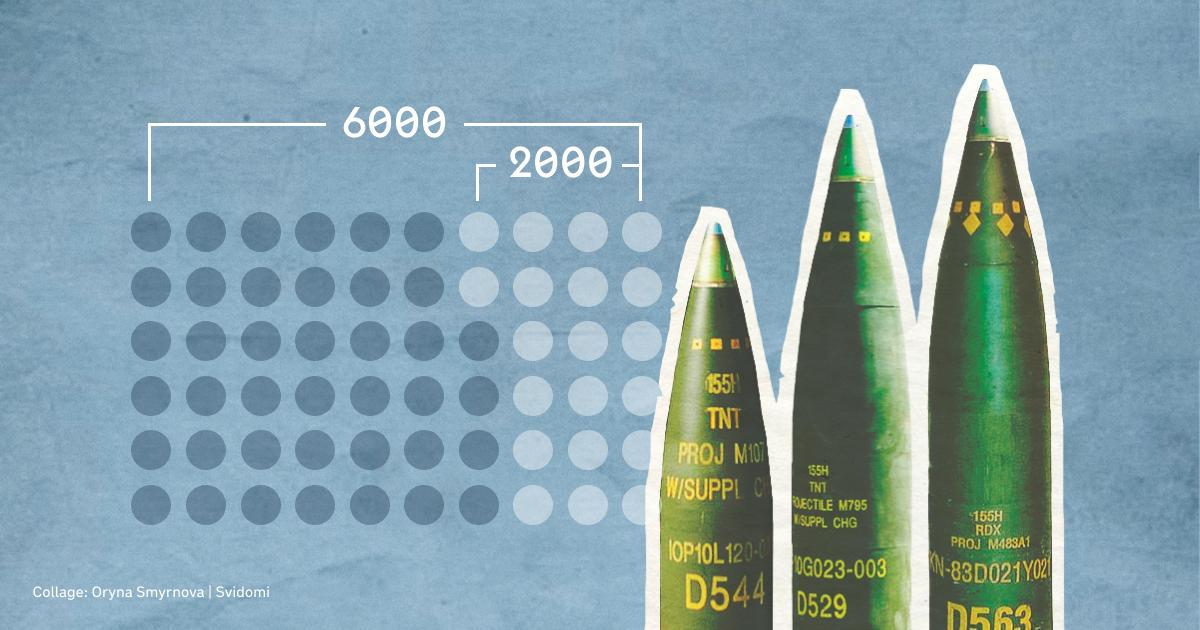
The first initiative — within the EU — has faced a lack of resources in the Union to produce and deliver shells to Ukraine. In March 2023, the EU agreed to transfer one million artillery shells to Ukraine over the next 12 months. It was planned that the EU would first transfer existing stocks and then deliver those it would purchase through joint procurement contracts and increased industrial capacity.
By October 2023, however, it was clear that the EU could not keep its promise. Bloomberg wrote that the European initiative had reached about 30% of the promised amount as of October. As a result, several EU member states privately appealed to the bloc's foreign policy department to extend the deadline. According to the publication, the United States, which plans to increase its production of shells to 1 million a year by 2024, urged the EU to step up its efforts. However, neither US nor EU officials commented on the information.
However, Dmytro Kuleba confirmed the Bloomberg report, saying that the reason for this was the "deplorable state of the defence industry" and "a lot of things that are not synchronised, a lot of bureaucracy".
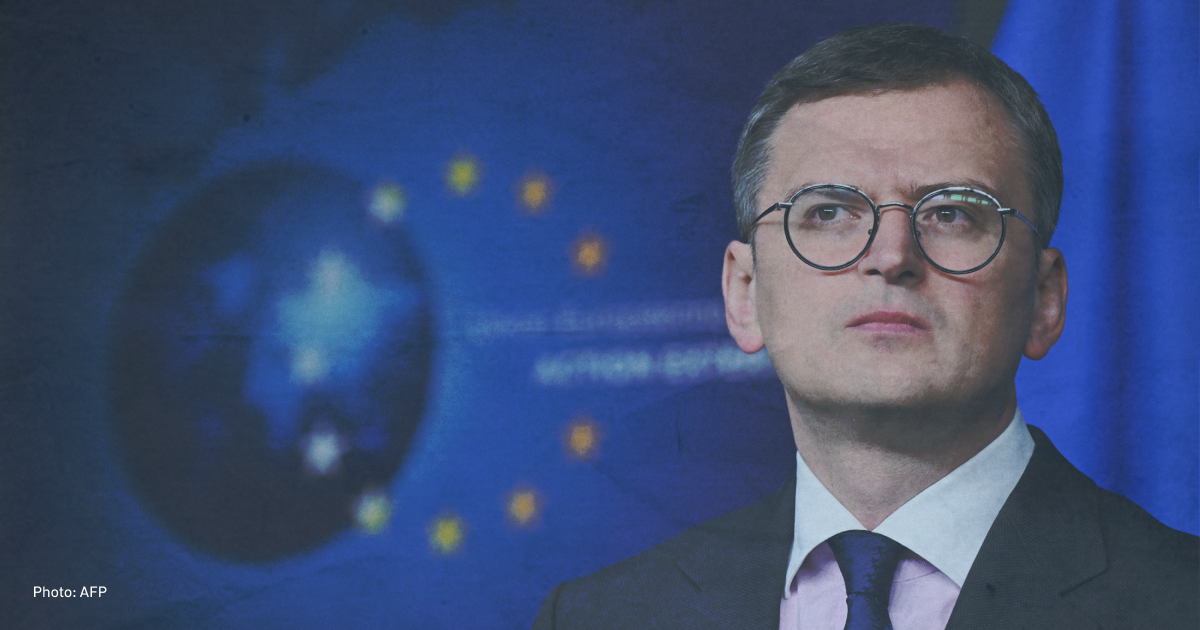
A few months later, in early January 2024, Josep Borrell said that the EU would fulfil its promise by the end of the year. At the end of February, Volodymyr Zelenskyy noted that Ukraine had received only 30% of the shells promised by the EU.
Another initiative came from the Czech Republic. In February, President Petr Pavel told the Munich Security Conference that the Czech Republic had found "500,000 155mm shells and another 300,000 122mm shells" outside the EU, which could be shipped to Ukraine if funding could be found. It later emerged that Czech diplomats had found a further 200,000 shells.
Portugal (€100 million), France, the Czech Republic, Latvia, Poland, Denmark, Estonia, Luxembourg (undisclosed amounts), Norway ($153 million), Germany (€300 million), Iceland (€2 million), Slovenia (€1 million), Finland, Sweden (€30 million each), the Netherlands (€250 million), Belgium (€200 million) and Canada (up to $30 million) have agreed to fund the initiative. Poland will also help supply ammunition to Ukraine.
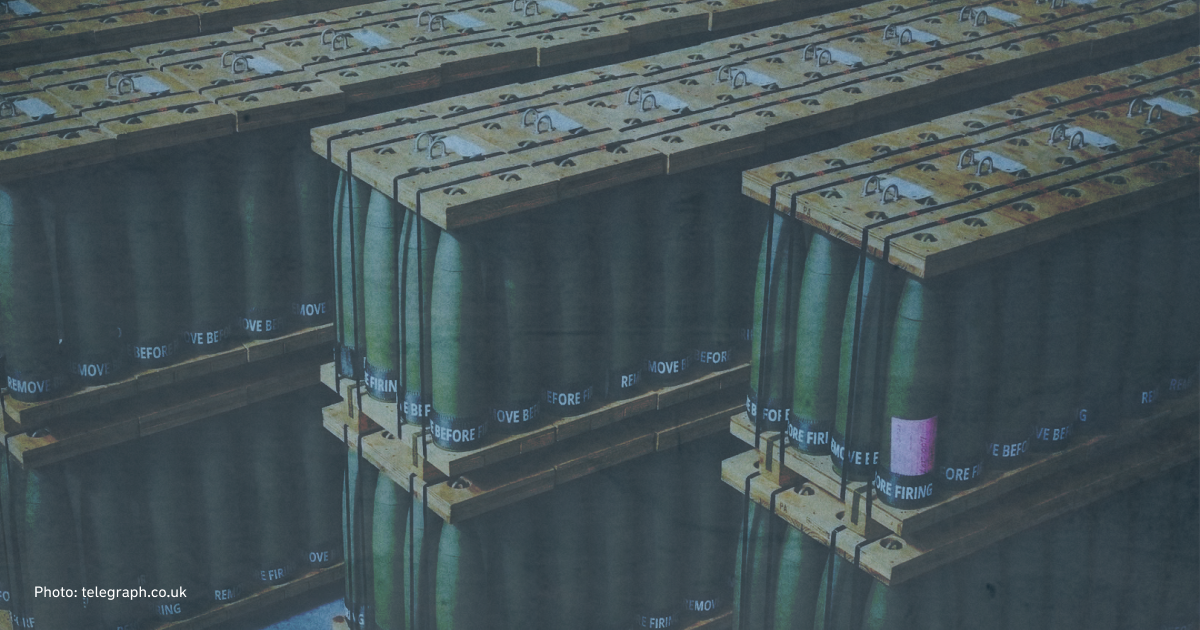
The Wall Street Journal writes that the Czech Republic plans to buy these shells from Russia's allies. The country's "Soviet legacy has helped," as the Czech Republic has ties to many countries in the Global South with large stockpiles of Soviet-era weapons and the capacity to produce more shells.
On April 3, Czech Foreign Minister Jan Lipavský said that Ukraine needed to increase funding to buy more ammunition. The first batch of shells under the Czech initiative will be delivered to Ukraine by June 2024. This coincides with the planned Russian counter-offensive warned of by President Volodymyr Zelenskyy (Volodymyr Zelenskyy has been warning since February that Russia is preparing a counter-offensive for late May or early June 2024. The details of this offensive are currently unknown to the public — ed).
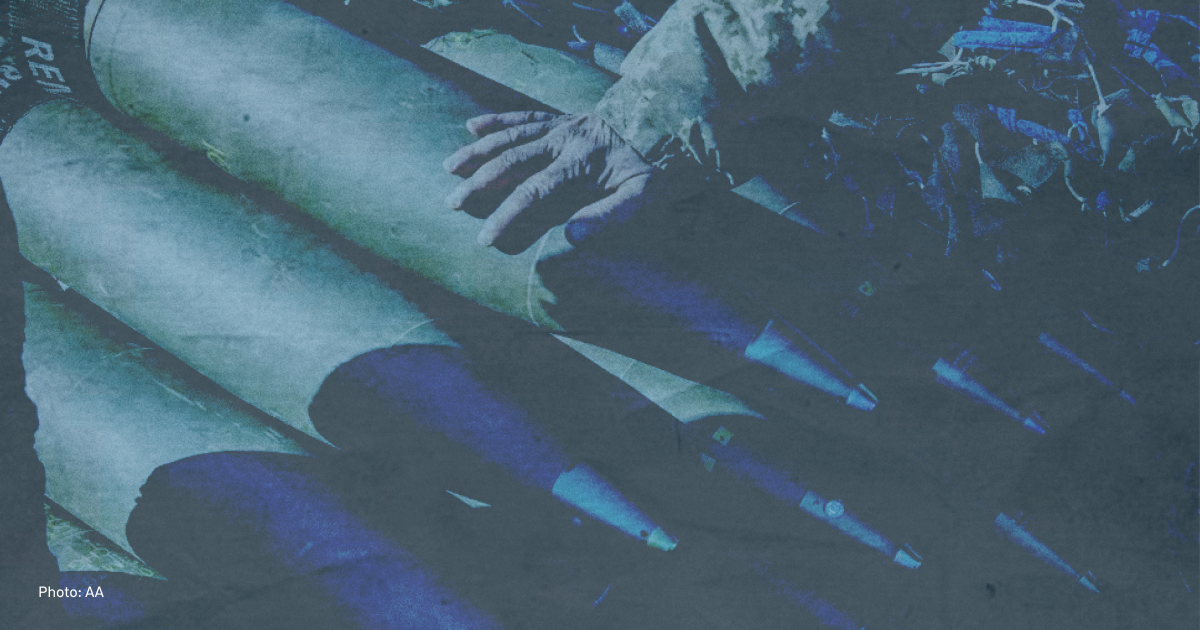
The shortage of available ammunition, as well as its production, is a global phenomenon. This is due to a shortage of gunpowder. According to Justin Crump, a British defence commentator and head of Sibylline, a security consultancy, the global supply and demand for gunpowder and ammunition is not just a Ukrainian problem. The supply of raw materials is limited: there are only so many places in the world where gunpowder, guns and ammunition can be produced, and the whole world uses them. Russia uses the same raw materials as the rest of the world. But at the same time, Russia has reserves for its production.
CNN, citing NATO intelligence, writes that Russia produces about 250,000 artillery shells a month, or about 3 million a year, to wage war against Ukraine. In contrast, the United States and Europe can only produce about 1.2 million munitions a year to supply Ukraine.
According to the channel's unnamed interlocutors, Russia's superior rate of arms production could give its troops a decisive advantage in the offensive.
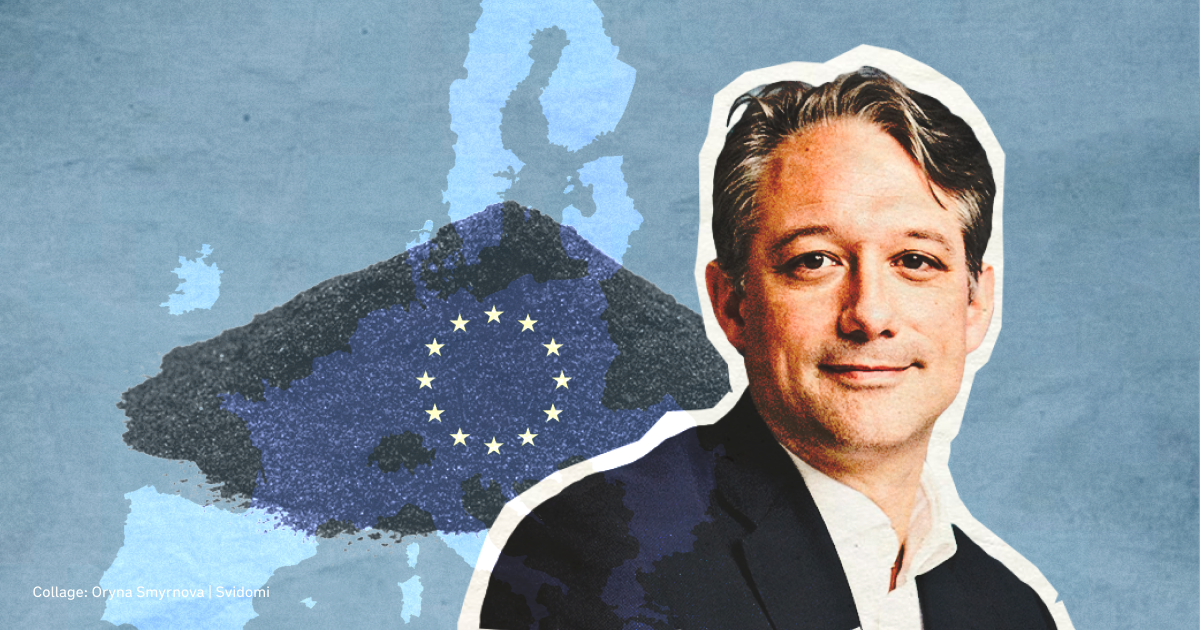
How Western companies contribute to gunpowder production in Russia
The Wall Street Journal recently analysed trade data and found that Russia has increased its imports of nitrocellulose, which is used to make gunpowder for artillery shells, among other things. Producers of nitrocellulose that have supplied Russia in the past two years include US, German and Taiwan companies.
Russia itself produces "little" nitrocellulose. After the European Union and the United States imposed sanctions on Moscow, China increased its supplies to Russia. However, according to trade data, a small company in Türkiye, Noy, has been responsible for almost half of Russia's nitrocellulose imports since the start of the war. Russia buys nitrocellulose produced in the US, Germany and Taiwan through Noy. According to company records, most of Noy's sales, based in Istanbul, were to Russian companies registered as contractors to the Russian government.
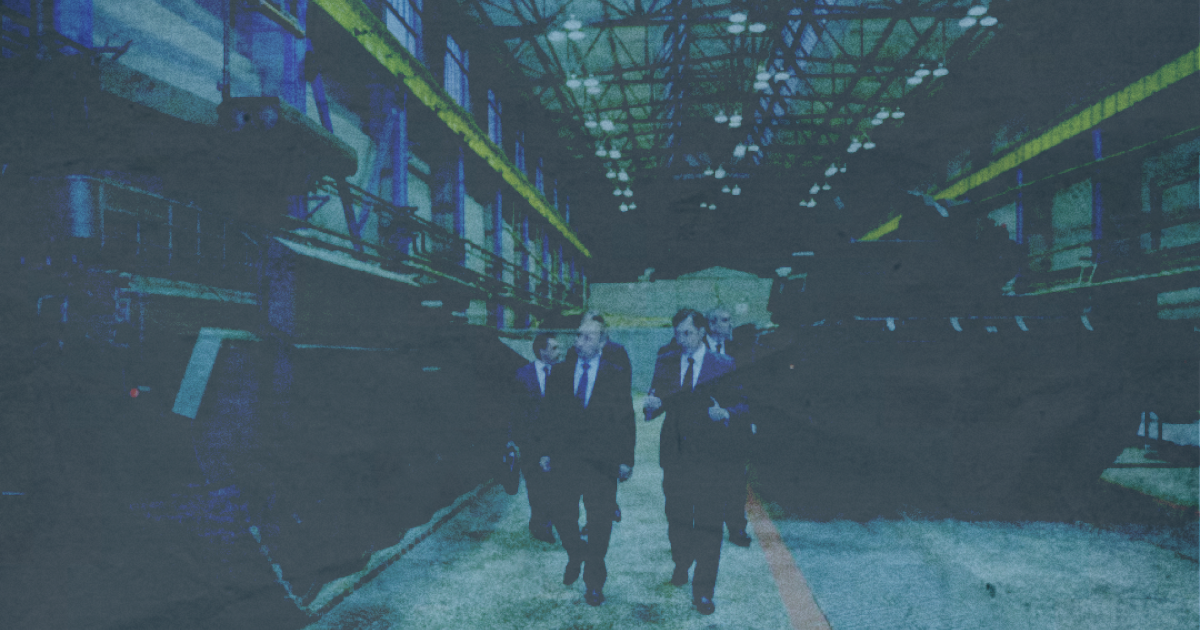
The German subsidiaries of New York-based International Flavours & Fragrances sold at least 80 tonnes of nitrocellulose to Noy and then shipped the products to Russia. Taiwan's TNC Industrial produced more than 500 tonnes of nitrocellulose, which Noy shipped to Russia last year. Over the past two years, the company has bought a similar amount from German producer Hagedorn-NC and shipped it to Russia.
Another Russian importer, Analytical Marketing Chemical Group, has received nearly $700,000 worth of nitrocellulose from Taiwan over the past two years. The company's website states that it is a regular Kazan State Powder Plant partner.
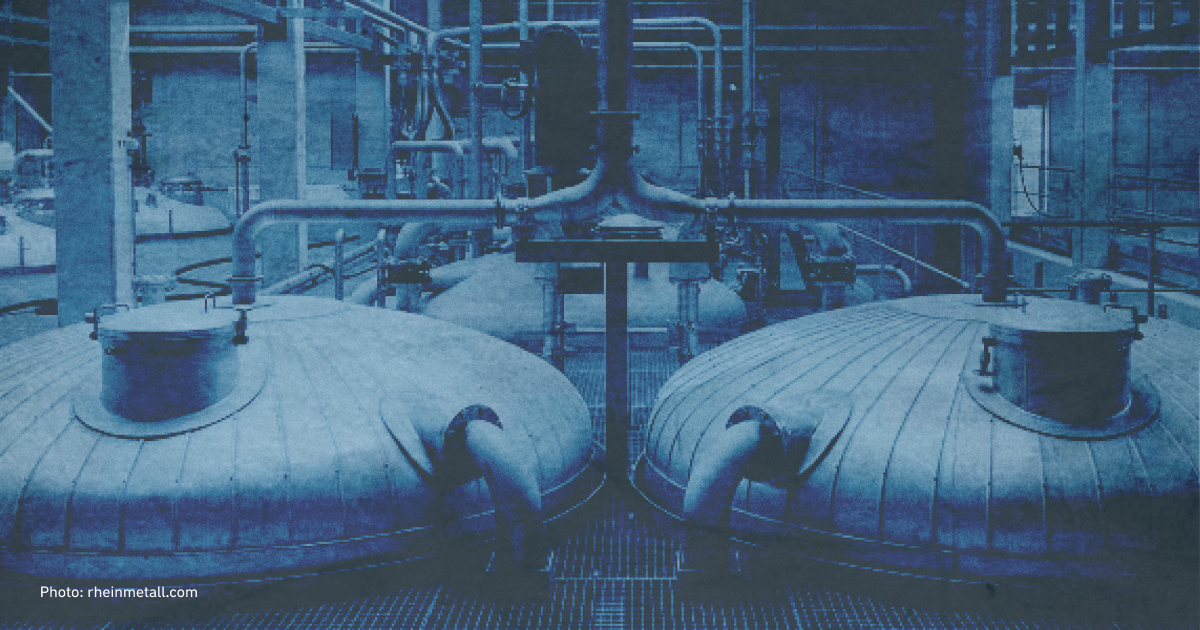
Air defence systems and missiles to protect civilians and infrastructure
According to The Telegraph, ABC News and The Washington Post, Ukraine faced a shortage of missiles for its air defence systems in March 2024, affecting its ability to repel Russian missile attacks. In mid-March, The Telegraph reported that due to a shortage of air defence missiles, Ukraine would only be able to shoot down one in five Russian missiles, rather than the four in five it was trying to shoot down at the time.
The media reported that this shortage could become most noticeable at the end of March 2024. It was during this period that Russia resumed attacks on critical infrastructure such as hydroelectric and thermal power plants. On March 22, the Burshtyn TPP (in the west of the country in the Ivano-Frankivsk region) and the Ladyzhyn TPP (in the centre of the Vinnytsia region) were hit, with all units damaged. In the Kharkiv region, the Zmiivska TPP was completely destroyed, etc. The Russians also attacked the Dnipro HPP on March 22 and the Kaniv and Dniester HPPs on March 29.
According to Ukraine's Countering Disinformation Centre, Russia has not abandoned its plans to "destroy Ukraine's energy sector and will continue to launch missile strikes to take advantage of the constant delays in Western security assistance" and Ukraine's ability to avoid a systemic failure in the event of repeated attacks depends on the supply of missiles for air defence systems by Western partners.
Ukraine is currently facing a power shortage as a result of the Russian attacks. Blackout plans are now in place across the country, affecting both businesses and domestic consumers.
However, Russia is not only attacking infrastructure but also civilian targets. Dozens of people have been killed in these attacks.
On May 25, the Russian army attacked a shopping centre in Kharkiv, which has been shelled daily. At least 17 people were killed, but the search continues.
At the time, President Zelenskyy and Foreign Minister Kuleba insisted that Ukraine needed additional air defence systems to protect its cities from missile attacks.
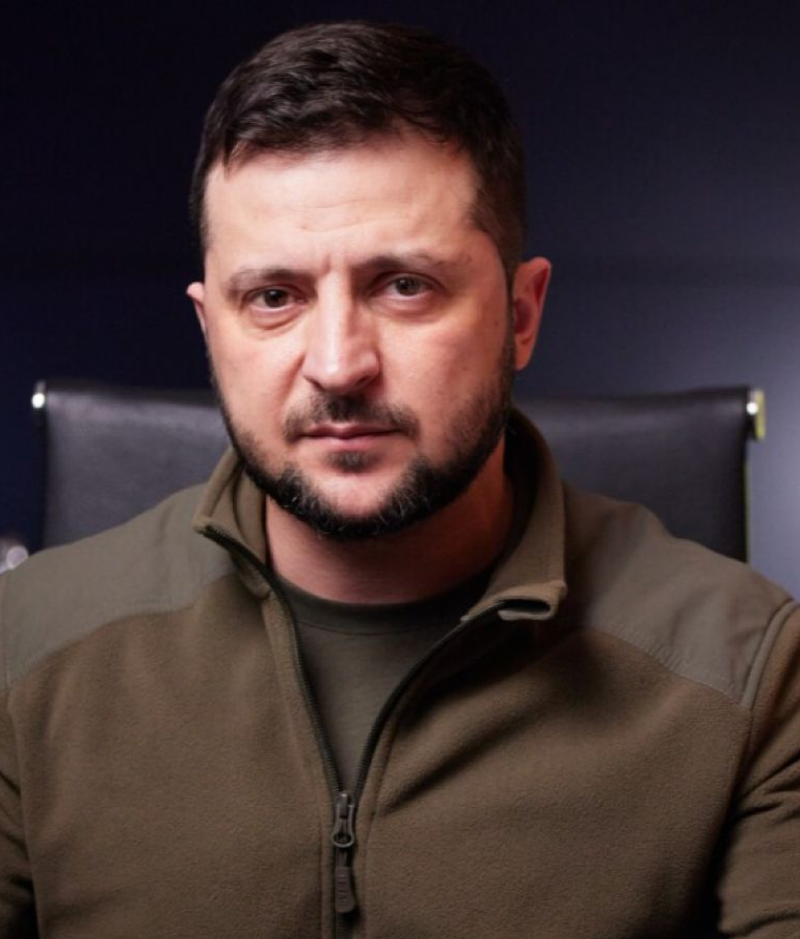
"The world has the means to counter Russian terror, and we in Ukraine need that help. Timely and sufficient support from partners. Stable and unwavering support for our soldiers. Additional advanced air defence systems, especially Patriots, and the ability to destroy Russian terrorists so they cannot come near our borders,"
the President stressed.


